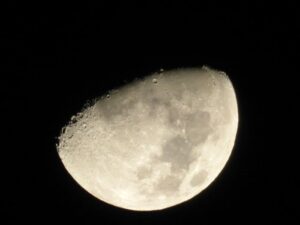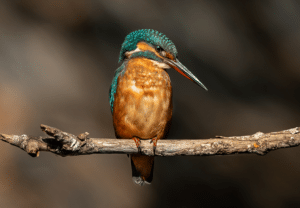By Sue Ogden
Spring has at last arrived and now is the time we all want to get those jobs done in the garden – planting, weeding and so on. We sometimes forget the safety side of things when it comes to our pets, and sometimes forget that plants and trees can pose a threat along with those boxes and bags of seeds, fertilisers and treatments we use on the garden.
There are three main ways for your pet to take in toxic substances. The main one we all know is ingestion, where they pick something up and eat it. Then there is inhalation, where they take in toxic vapours through their nose, and then there is the skin. This along with inhalation is difficult to see happening.
At this time of year, when we are all trying to get out in the garden to do that much-needed tidying up and planting, we do have to be vigilant to ensure that all substances are put away after use, well out of the reach of our four-legged furry friends.
We can read labels on cans, bottles and boxes, but they cannot. We know what we have mixed in the watering can, but they do not. And we would not eat bulbs, cuttings, leaves, slug bait, but they may well do.
We do have to make sure that the plants we have in our gardens are not a risk to our pets, more so if there is a puppy in the house, as we all know puppies will eat or drink most things they can get hold of. Some older dogs too love to chew on branches, leaves, twigs and some are known to try to eat fruit when on trees as well as windfalls.
Fruits can be lethal to our pets, especially if they help themselves to fallen fruits. Some of the most common fruits we have here that pose a threat include apples as the seeds contain cyanide; apricot kernels contain cyanide; avocado fruit and its pith can be fatal; cherry kernels contain cyanide; peach stones and peach leaves contain cyanide; raisins can cause kidney failure and can thus be fatal; rhubarb leaves, consumed in large amounts, either cooked or raw, can be fatal; walnut juice is poisonous.
Then we have flowering bulbs: amaryllis bulbs can be fatal as can crocus bulbs; daffodil and narcissus bulbs can also be fatal; hyacinth bulbs are harmful if eaten in quantity and ingestion may cause skin allergy.
We can now find a lot of different bulbs here, and we all like to have those pretty English flowers in spring, but please do be careful where you store them and ultimately plant them.
Then there are the plants themselves: aloe vera can cause severe diarrhoea; angels trumpets are toxic if eaten, causing nausea and vomiting; and box leaves are harmful if eaten in quantity; the gastrointestinal tract may be affected by mainly the seeds of the bird of paradise, which contain toxins; calla lily leaves are harmful if eaten in quantity; oleander is poisonous, affecting the heart, producing severe digestive upset and can be fatal.
We also need to be vigilant and watch if our animals try to raid our bins in the kitchen, as some discarded items can also cause health problems. Onions can cause anaemia and should not be fed to dogs in any form, either cooked or raw. Green potato skins and the young shoots of the potato can be harmful if the dogs get to them. Tomato plants, green fruit, stems and leaves can also be harmful if eaten in quantity.
We now have greater access to plants and shrubs that are not just native to the Algarve, and the list of plants, shrubs and bulbs is long. If you are not sure about the plants you have in your garden, then you can check online just to be safe. It is better to take time to check up on things before a problem occurs.
Other items to be careful with around the home to protect your furry friends include: anticoagulant rodenticides, ibuprofen (Nurofen, Advil), metaldehyde (Slug Bait), human oral contraceptives, chocolate (Theobromine ), salbutamol (Ventolin Inhaler), wallpaper paste, Borax boric acid ant killer gels, aspirin, Bendiocarb (powder ant killer), white spirit (BBQ lighter fluid), antifreeze (used as a summer coolant also), bleach, creosote.
The grass eating myth
I do get asked on a regular basis: why does my dog insist on eating grass? There have been many studies carried out, and there is no obvious reason for this behaviour, with all the results confirming this is normal behaviour and nothing to worry about too much.
There is the dog and cat that happily nibble away at grass while out for a walk, and suffers no ill effects – it has been suggested that this is to make up for nutritional deficiency. But even dogs that have a well-balanced diet like to nibble grass, probably due to them enjoying the taste, like a canine version of salad.
Then you have the dog or cat that will look for grass to eat and then throw it back up, thought to be a deliberate act to induce vomiting, after they have eaten something that maybe does not agree with them and is making them feel ill.
You will know if your pet is eating grass to induce vomiting, as it will eat the grass fast and not chew it well. It is generally believed this causes irritation and that in turn induces the vomit reflex. Obviously if your dog carries on eating grass and throwing up, or has trouble in vomiting, then you must take him to the vet, as there could well be an obstruction stopping him from throwing it back up.
As with anything, keep an eye on the type of grass he is eating and do not allow him to eat anything that has been treated with pesticides or fertilisers. Most lawn care products will have a label on them stating if they are safe to be used around your pets.
Like everything in life, you do have to use some common sense. Being part of a dog’s life is very rewarding, and full of fun and laughter, but you do have to take the time to ensure nothing that is harmful is within their reach.
As with children, if there is something they are not allowed to play with, dig up, or roll about on the floor in, they will do it. So it is up to you, as the owner, and a sensible one, to make the home and surrounding area a safe and happy area for all to enjoy.
Until next month, happy gardening.
||features@algarveresident.com
Sue Ogden is a professional dog groomer living in the Algarve. In her regular column, she provides readers with information on how best to care for their pets. Trained in the UK, she studied nursing, breeding, grooming, nutrition and kennel management. 910 851 140
























